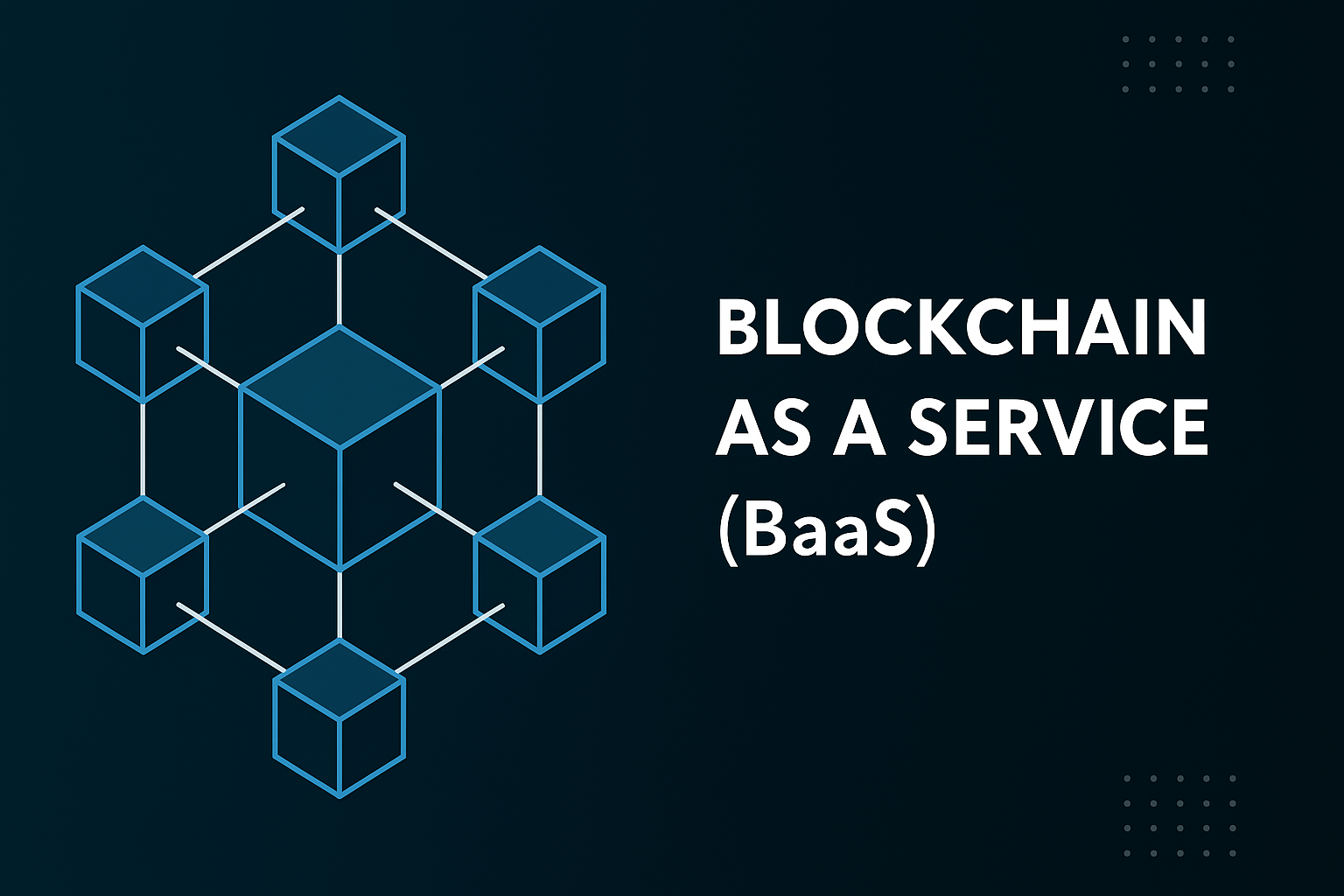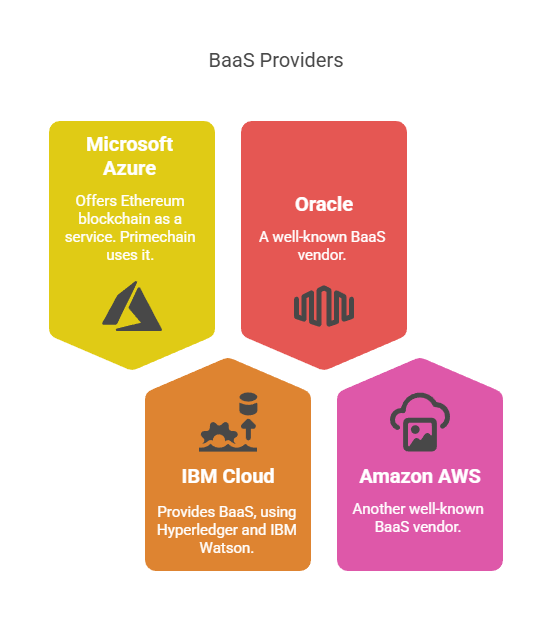In this article, we learn what BaaS is, Key features, Benefits, and Blockchain as a Service Companies in detail
With Blockchain-as-a-Service (BaaS), companies may create, host, and maintain blockchain applications without worrying about the underlying infrastructure to a cloud-based platform. BaaS essentially serves as a web server, offering the backend services required for applications built on the blockchain.
Organisations can more easily embrace and implement blockchain technology with the help of Blockchain as a Service (BaaS). As an extension of Software as a Service (SaaS), it allows a customer to deploy a blockchain platform in the cloud.
What is BaaS?

Vendors offering easily deployable, customisable blockchain solutions are involved in BaaS. The management of the blockchain’s infrastructure and software, including features like operating systems and security, is taken on by a cloud provider under this arrangement. The client or business may concentrate on creating and running their decentralized apps (DApps) with this approach, freeing them from the hassle of establishing and maintaining the underlying blockchain infrastructure. To provide clients with tangible blockchain solutions, it basically acts as a development platform that combines IT services with development processes. Blockchain is the software or program that the cloud service provider provides and manages in BaaS, and the company manages the DApps that are developed on top of it.
You can also read Understanding Blockchain Scalability Problem And Solutions
Key Features and Benefits:
Simplified Blockchain Adoption: By lowering the complexity and expense of creating and managing a blockchain network, BaaS makes it simpler for companies to implement blockchain technology.
Scalable Infrastructure: BaaS platforms enable organisations to readily modify their resources as needed by offering scalable infrastructure.
Focus on Core Business: By contracting out the backend infrastructure, companies can shift their attention from the underlying technology to creating and implementing their blockchain applications.
Managed Services: Hosting, data security, and bandwidth management are among the managed services that BaaS providers usually provide.
Cost-Effective: Companies may control their spending and stay within their budget by paying only for the processing power they need.
Industry-Specific Solutions: A few BaaS providers provide solutions specifically designed for particular industries, such as healthcare, financial services, or supply chain management.
Reduced Capital Costs: Before deploying them to live networks, developers may quickly prototype on test blockchains using BaaS systems, which provide an affordable environment. By doing this, the significant upfront expenses related to establishing and managing their own blockchain networks are circumvented.
Blockchain applications can be swiftly Rapid Prototyping and Deployment by developers in a simplified cloud environment to this feature. With BaaS, developers can quickly deploy DApps and smart contracts by using cloud-based blockchain environments that are drag-and-drop and single-click accessible.
Meeting Enterprise Requirements: BaaS solutions are made especially to meet important business demands including deployment management, scalability, privacy, and governance.
Managed Network: BaaS systems offer a fully controlled blockchain network by incorporating features like centralized user management and node distribution. Customers can use this to create and administer their DApps on a fully controlled blockchain network.
You can also read Hyperledger Fabric News: Seamless Upgrade Guide
Blockchain as a Service Companies

A range of blockchain protocols are supported by BaaS, which is provided by several significant tech companies:
- The Ethereum blockchain is available as a service through Microsoft Azure. For example, Primechain Technologies collaborated with Microsoft to provide its consortium members with a BaaS model. Quorum can be found on Azure as well.
- Their own blockchain as a service is provided by IBM Cloud. IBM (Bluemix) and Hyperledger have teamed up to provide BaaS to its clientele. Through BaaS, it has also made use of IBM Watson’s cognitive powers to offer IoT-based solutions.
- With the help of BaaS platforms, developers can implement private or semi-public blockchains utilising Ethereum, Ripple, and Bitcoin protocols.
- Oracle and Amazon AWS are two other well-known BaaS vendors.
- BaaS is also compatible with Hyperledger Fabric, a permissioned consortium blockchain, and platforms such as Kaleido.
Context within Blockchain Adoption
A new deployment and growing trend in the quickly changing blockchain technology landscape is BaaS. Cloud platforms are becoming more mature, and there is a rising need for easily accessible blockchain solutions. Blockchain technology is more accessible for a greater variety of corporate use cases to BaaS’s simplification of the technical barriers to entry.
You can also read What Is API In Blockchain? Guide To Blockchain Integration
